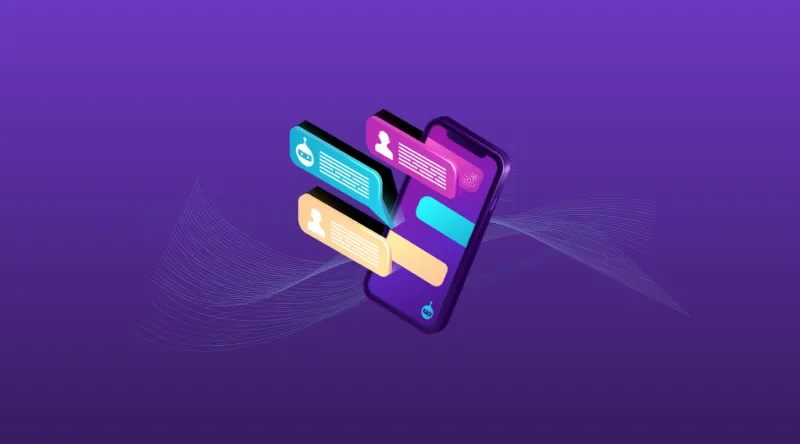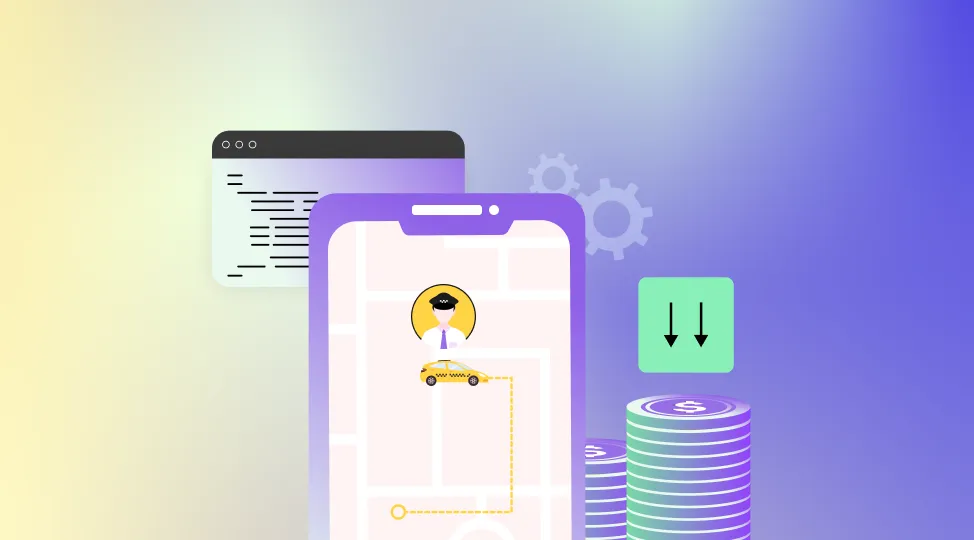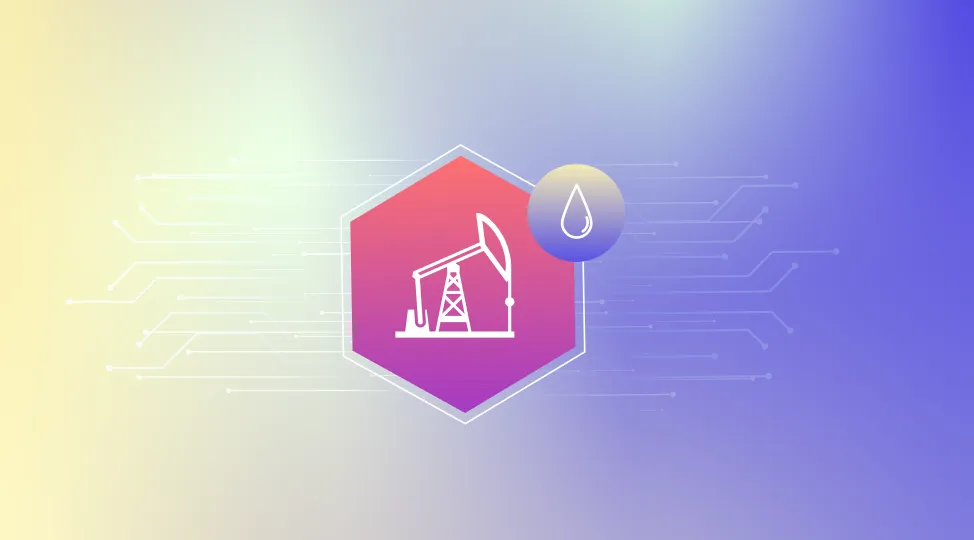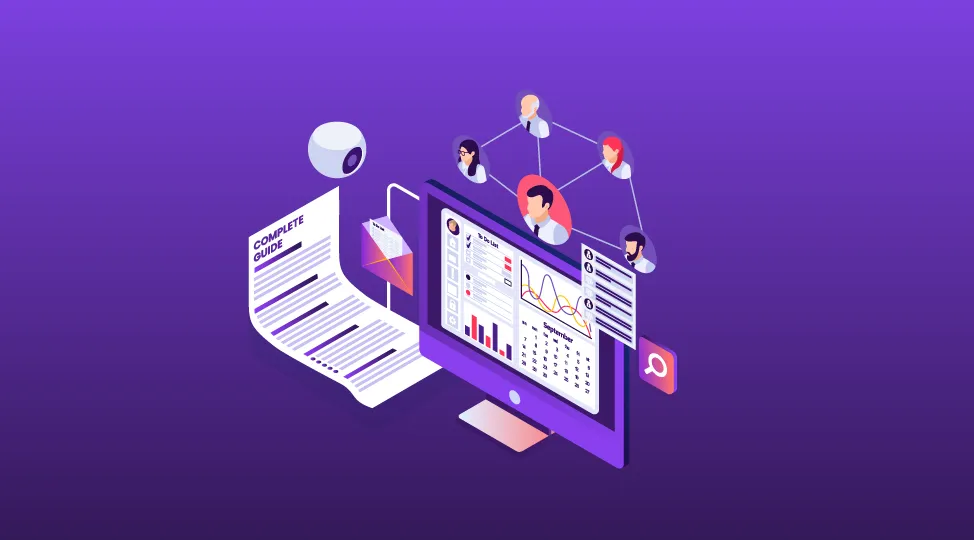As your business expands, your small team can quickly get overwhelmed by a flood of tickets, leading to slow response times and unhappy customers.
Analyst shows that 32% of customers will stop doing business with a brand they love after just one bad experience.
But what if you could have a tireless assistant that handles complex customer issues 24/7?
This is exactly where the true power of agentic AI comes in.
Unlike simple chatbots, an Agentic AI is capable of understanding, planning, and taking action on its own.
The right Agentic AI System is the smarter, more scalable solution your startup needs. It's the future of agentic AI in customer service, providing an innovative, scalable solution your startup needs not just to survive, but to thrive.
In this guide, we will discuss how businesses, especially startups, can use Agentic AI for customer support, exploring its key advantages, use cases, and must-have features to look for.
For those looking to build a custom solution, understanding the role of Agentic AI is a crucial first step.
Before you deep dive into building the right chatbot for your business. Have a glimpse of Agentic AI.
What Is Agentic AI?
Think of an agentic AI as a smart teammate, not a simple talking robot. While a basic chatbot just follows a script to answer questions, an agentic AI is different. It can think for itself, make decisions, and complete an entire task from start to finish.
For example, if a customer needs a refund, the agentic AI can locate their order, process the refund, handle the money, and even send a confirmation email—all by itself. This kind of AI uses logic and data to solve problems faster, helping your human team focus on more complex tasks.
Why do businesses want to implement Agentic AI?
The reason many businesses are eager to adopt this technology is simple. Agentic AI in customer service solves real problems. They make your work smarter and your customers happier.
First, think about speed and efficiency. Time is money, right? A study by Plivo found that businesses using AI tools resolve tickets 52% faster than those without them. This means less waiting for your customers and a lighter load for your team.
Second, it's about being available all the time. Your customers live everywhere, in different time zones. Agentic AI works 24/7. It handles questions on nights, weekends, and holidays, so your support is never truly "closed."
Finally, it’s about a more innovative way to work. Agentic AIs handle the simple stuff. This frees up your human agents. They can focus on complex issues. They can build stronger customer relationships. This makes their jobs more rewarding and your customer service much better overall.
Agentic AI Use Cases for Customer Service
Agentic AI represents a powerful tool that’s changing how all kinds of businesses work. Essentially, these Agentic AIs handle complex tasks autonomously, which in turn frees up your human team to focus on bigger challenges.
Retail & E-commerce
In the fast-paced world of retail, agentic AI handles customer service in a way that makes sense.
- Order Issue Resolution: Imagine a customer whose package is missing. The Agentic AI can instantly verify order details, check shipment status, and automatically initiate a refund or replacement.
- Returns and Exchanges: Furthermore, the AI manages the entire returns process, from generating a shipping label to confirming the refund.
- Personalized Recommendations: Similarly, the agent analyzes a customer’s past purchases to recommend products they might like during a support chat.
- Inventory Alerts: In addition, the AI monitors stock levels and automatically alerts your team when a popular item is running low, which consequently helps prevent stockouts.
Cloud-Based Solutions
For SaaS businesses, keeping customers happy is the name of the game, and that's where an agentic AI truly shines.
Payment Failures: For instance, the Agentic AI handles failed payments smoothly by notifying the customer, retrying the payment, and even suggesting a different payment method.
Subscription Management: In fact, Agentic AIs can handle basic account management, helping a customer change their plan or update their information.
Automated Onboarding: Consequently, the AI guides new users through the setup process and answers their initial questions, so your human team doesn't have to.
Contract Renewals: Finally, the agent can proactively send renewal reminders to customers, so you are not scrambling at the last minute.
Healthcare Apps
In healthcare, patient care should always come first, and agentic AI makes that possible by handling routine administrative work.
Appointment Scheduling: For example, the AI manages appointment calendars, matches a patient's availability to a doctor's schedule, and sends reminders.
Answering Patient Questions: Similarly, Agentic AIs answer common questions about symptoms or conditions while keeping all patient data completely private, of course.
Patient Follow-up: Moreover, the AI sends automated check-ins after an appointment to monitor patient well-being and collect feedback.
Pre-visit Forms: In addition, the agent automatically sends and collects necessary forms from patients before a visit, making the check-in process much faster.
Fintech Startups
Fintech is all about speed and security, and agentic AI makes for a perfect fit.
Identity Verification: To start, the AI can instantly and securely verify a user's identity when they sign up or begin a sensitive transaction.
Explaining Transactions: In fact, the agent can explain unexpected charges on an account by looking at the customer's transaction history.
Automated Fraud Detection: Furthermore, the AI analyzes thousands of transaction patterns in real-time to flag suspicious activity, helping prevent fraud.
Credit Scoring & Loan Processing: The agent automates parts of the loan application process, including data collection and initial credit score analysis.
Telecommunications
Everyone knows telecom customer service can be a headache, but agentic AI changes that by handling technical support and network issues.
Automated Troubleshooting: For instance, when a customer reports a slow internet connection, the AI runs a diagnosis, checks their line, and even remotely resets their modem.
Service Outage Alerts: Additionally, the AI detects service outages and proactively notifies customers, so they aren't left in the dark.
Customer Win-Back: The agent also identifies customers who have left and reaches out with personalized offers to win them back.
Plan Upgrades: Finally, the AI guides customers through upgrading their service plan or adding new features to their account.
IT Support
For internal IT teams, Agentic AIs are an absolute godsend. They streamline employee support and automate many repetitive tasks.
Password Reset: For example, the Agentic AIs help employees reset their passwords or unlock their accounts without human intervention.
Software Provisioning: Furthermore, the agent automatically gives a new employee access to the software they need and ensures they have all their tools ready to go.
Hardware Procurement: In fact, the agent helps employees request new hardware, check its status, and get updates on delivery.
System Monitoring: Moreover, the AI monitors internal systems and sends alerts to the IT team if it spots a potential problem, which helps prevent bigger issues from happening.
Logistics & Supply Chain
In logistics, efficiency is everything, and agentic AI makes that happen by optimizing every step from inventory to final delivery.
Order Fulfillment: For instance, the AI manages the entire fulfillment process, ensuring that when an order arrives, the warehouse has the product in stock and is ready to ship it out.
Dynamic Route Planning: Similarly, the agent analyzes real-time data like traffic and weather to find the absolute best delivery routes.
Proactive Issue Resolution: In addition, if a shipping delay happens, the AI automatically alerts the customer and gives them a new delivery time.
Customs and Compliance: Furthermore, the AI automatically generates and manages customs documentation and communicates with carriers, which streamlines international shipping.
Human Resources
For HR departments, Agentic AI handles common employee questions, which frees up the HR team to focus on more human-centered tasks.
Policy Questions: For example, an employee can ask the AI about company policies, such as the holiday schedule or leave benefits.
Onboarding Assistance: In addition, the AI guides new employees through the onboarding process, helping them fill out forms and submit documents.
Employee Data Updates: Similarly, the agent assists employees in updating their personal information, such as their address or phone number.
Benefits Enrollment: Finally, the AI walks employees through the benefits enrollment process, answering questions about different plans and options.
Security
In security, agentic AI helps companies stay one step ahead of threats by proactively detecting and responding to them.
Threat Detection & Response: For instance, the AI monitors network traffic in real-time, instantly identifying anything unusual, and automatically stops a threat from causing damage.
Vulnerability Management: Moreover, the agent scans software for security flaws and prioritizes which ones need to be patched first.
Policy Enforcement: Furthermore, the AI automatically enforces security policies, ensuring that everyone in the company follows rules like using two-factor authentication.
Engineering
Finally, for engineering teams, agentic AI accelerates the development process in several innovative ways.
Automated Code Review: For example, the AI analyzes new code for bugs, errors, and security issues, giving the developer immediate feedback.
Test Automation: In addition, the AI generates and runs automated tests to make sure new features do not break existing ones.
Technical Debt Analysis: Similarly, the agent analyzes a codebase to identify areas of technical debt and suggests refactoring strategies.
API Documentation: Finally, the AI automatically creates and updates API documentation based on code changes, so all your docs are always up-to-date.

How Businesses are Adopting Agentic AI
Agentic AI in customer service is already making a big difference for businesses like yours. Here are a few examples of how the Implementation of Agentic AI works in the real world.
Real-Time Troubleshooting
Consider a customer who has an issue with a product. They do not have to wait to get an email. The Agentic AI System can explain how to correct it, much like a tech expert would. It can even put into question, comprehend answers, and restructure its guidance in real time. This type of assistance, done in the moment, is a game-changer.
Automated Order Management
How would one handle simple problems, such as requesting a refund or updating an order? The entire process can be performed by an Agentic AI rather than a human agent, who would spend some time on it. It can access the order name, process the refund, and send a confirmation email. This relieves your workforce and opens the door to hot, fast service to the customer.
Personalized Recommendations
Another use of an Agentic AI is as a sales partner. It tracks a customer's purchase history and browsing behavior, suggesting relevant items accordingly. A study by Tidio found that 73 percent of shoppers believe AI can enhance their customer experience, and this personalized interaction is a key reason. It causes customers to feel recognized and understood.
Proactive Customer Support
In some cases, a customer does not even realize that he has a problem as yet. The agentic AI can supervise systems and raise alerts before an actual occurrence occurs. For instance, if the payment was expected to fail, the AI could send a reminder. A 2008 study by Helplama indicates that 83 percent of consumers prefer the companies to reach out to them to resolve their issues, which then results in positive brand perceptions.
Sentiment Analysis and Smart Routing
Conversations with customers are not always alike. A machine learning-powered Agentic AI can parse the tone and emotion of a message, something we refer to as sentiment analysis. In case a customer gets frustrated or angry, the AI can instantly transfer such an individual to a human agent. This allows you to address the most sensitive issues personally, enabling you to handle customer satisfaction more effectively.
Automated Feedback and Surveys
Collecting feedback is key to growing. After a customer interaction, an Agentic AI can automatically send a simple survey. It can even ask smart follow-up questions. This makes the process easy for customers and gives you valuable insights. According to Qualaroo, 78% of people prefer brands that collect and accept customer feedback.
Account and Subscription Management
This is a huge time-saver. An Agentic AI can handle requests like updating billing information, changing a subscription plan, or resetting a password. These are standard, repetitive tasks. By automating them with an Agentic AI System, your customers get instant help, and your human team can focus on more complex, strategic work.
How to Choose the Right Agentic AI in Customer Service Platform
Before committing to a platform, it is critical to select a solution that aligns with your startup's operational needs and growth trajectory. The right choice is a strategic asset, not just a tool.
Here’s how innovative startups make an informed decision when selecting an Agentic AI platform.
1. Match the Agentic AI to Your Support Complexity
Evaluate your support needs honestly. If your customer service primarily involves simple FAQs, a basic AI customer service agent may suffice. However, for product-specific or account-related inquiries, you require an agentic AI and Generative AI development service that can handle dynamic workflows, business logic, and layered decision trees.
Look for: Platforms designed for building complex, multi-step workflows, not just static chatbot flows.
2. Speed of Learning & Adaptation
The startups need to be agile. Your AI representative should be not only able to adapt as accurately as your product and policies. Systems that require intensive training cycles or that require continual developer intervention may cause bottlenecks.
Look for Platforms that offer real-time learning, automated self-training, or simple re-training capabilities that leverage earlier chat history.
3. Data Privacy & Compliance Built-In
For fintech, healthtech, or any SaaS company, data security is non-negotiable. Your customer service Agentic AI must be built with compliance in mind, including GDPR and HIPAA readiness, to mitigate risk. Neglecting this early can lead to costly audits and data breaches later.
Look for: Features such as role-based permissions, end-to-end encryption, and clear data retention policies.
4. Integration With Your Existing Tech Stack
Your AI should enhance what you already have, rather than predetermining the redesign of your system. Suppose your stand utilizes tools like HubSpot and Zendesk, or develops its own. In that case, your AI customer support assistant should be designed to operate without errors and in conjunction with various solutions.
Examples to look out for Include Native integrations, Webhooks, or well-developed API support that can be deployed quickly.
6. Post-Launch Control Without Developer Bottlenecks
As long as your platform is up and running, then your team must be in control. A platform that puts everything behind a developer dashboard impedes the speed of iteration. The most efficient platforms enable non-technical members of the team to go through feedback, edit, and track performance.
Seek: Easily understandable Dashboards, rule constructors that are built without code, and live testing to keep improving.
Must-Have Features in Your Agentic AI in Customer Service
Not all Agentic AI is created equal. To truly drive customer service excellence, businesses must choose a platform with advanced capabilities that enhance efficiency, adaptability, and seamless integration into existing workflows.
When evaluating Agentic AI, be sure to prioritize these essential features:
Conversational Intelligence & Multilingual Support
The core of any great Agentic AI is its ability to understand and respond to customers naturally. Look for a system with robust Natural Language Processing (NLP) that goes beyond keywords to understand context and intent. A top-tier agent can also detect a customer's emotions through sentiment analysis and adjust its tone accordingly.
This intelligence, combined with support for multiple languages, ensures you can provide a high-quality, inclusive experience to a global audience.
Autonomous Decision-Making & Action
The most effective Agentic AIs do more than just talk; they act. The ability to make decisions and execute tasks without human intervention is crucial for efficiency. Your agent should be able to handle an entire process autonomously—such as processing a refund, updating a subscription, or troubleshooting an issue—freeing up your human team for more complex work.
Seamless Hand-Off to Human Agents
A great Agentic AI knows its limits. It must be able to smoothly transition a conversation to a human agent when a query becomes too complex or sensitive. The best systems ensure this hand-off is seamless by providing the human agent with the full chat history and a summary of the interaction. Hence, the customer never has to repeat themselves.
Robust Integration Capabilities
Your Agentic AI should be a central part of your tech stack, not a standalone tool. Choose a platform that easily integrates with your existing technology, including your CRM, ticketing software, and communication platforms like Slack or Microsoft Teams. This ensures data flows smoothly, and your entire team can collaborate effectively.
Advanced Analytics and Reporting
You can't improve what you don't measure. A must-have feature is a comprehensive analytics dashboard that provides real-time insights into your Agentic AI's performance. It should track key metrics like resolution rates, escalation ratios, and customer satisfaction. These metrics are crucial for measuring ROI and making data-driven improvements to your support strategy.
Scalability and Flexibility
As a startup, your needs today will be different from your needs a year from now. Your Agentic AI platform should be able to scale with you. Look for a solution that can handle growing traffic volumes and offers the flexibility to easily add new use cases and features as your business evolves, without requiring a complete system overhaul.
Strong Security and Compliance
Data security is non-negotiable. Your Agentic AI platform must protect customer data and comply with all relevant regulations, such as GDPR and HIPAA. Choosing a platform that takes this seriously from the start will save you from major problems and security risks down the line.
Suggested Read: How to Build Agentic AI Systems – Frameworks, Tools & Tips
Step-by-Step Guide for Startups Using Agentic AI for Customer Support
Now that you know the agentic AI best practices for your business, you may be thinking, "Where do I even begin?”
So, don't worry. Let me assist you in that.
Whether you're a tech founder or a slight support team lead, this simple plan will help you build Agentic AIs that work.
Step 1: Identify Your Support Bottlenecks
First, look at what's slowing your team down.
Check your past support chats, email tickets, and help desk logs.
Ask yourself:
- What are the most common questions we get every day?
- Are there issues that get asked again and again?
- What kind of tickets take up most of our support time?
These repetitive issues are the perfect first step, as they allow you to see the value of your Agentic AI in customer service agent quickly.
Example:
If 30% of your tickets are about resetting passwords or tracking orders, that's your first use case for an Agentic AI for customer support.
Step 2: Choose the Right AI Tech Stack
Now that you know what to fix, it's time to find the right tools.
You don't need a vast system. But you do need something that works with your current setup—like your CRM, email support system, or live chat.
Look for platforms that offer:
- Natural language understanding (NLU) enables AI to understand what your customers are really saying.
- Workflow automation allows you to set up simple rules and actions.
- Omnichannel support, so your Agentic AIs for customer support can work across email, chat, and voice.
- Easy integration, it connects smoothly with what you already use.
Step 3: Train Your Agentic AI
Here's the part where many go wrong—don't skip training.
Your AI customer service agents are only as good as the information they're given.
If you feed them junk, they'll give you junk back.
Start with:
- Past support tickets
- Chat history from your help desk
- FAQ pages
- Knowledge base articles
Use real examples from your business. That's how you make your Agentic AI sound natural and helpful.
And yes, the more examples you give, the smarter it gets.
Step 4: Test Before Going Live
Before letting your customer service Agentic AI talk to real customers, you need to test it.
Set up a test environment. Run fake support tickets through it.
Have your team act like customers and see how the Agentic AI responds.
Check:
- Is the tone correct?
- Does it give accurate answers?
- Does it know when to escalate to a human?
Tweak and retrain if needed.
You wouldn't launch a product without testing it, right? Same rule here.
Step 5: Monitor, Measure, Improve
Once you go live, your job isn't done. You need to keep improving your agentic AI customer service system.
Track performance. Use real numbers.
Some key metrics to watch:
- First response time – How quickly does your Agentic AI customer service respond?
- Resolution rate – How many tickets are solved without human help?
- Escalation ratio – How often does the agent pass things to a human?
- Customer satisfaction (CSAT) – Are users happy with the support?
Check this weekly or monthly. Minor tweaks can lead to big results.
Also, use customer feedback to update and retrain your Agentic AIs for customer support. Make it part of your regular support process.
Challenges and Ethical Concerns of Using Agentic AI
While agentic AI is very powerful, using it comes with a few important challenges. Startups need to be careful about these to make sure they use the technology responsibly and keep customers happy. A PwC study revealed that customers value transparency and trust when companies utilize AI.
The Problem of Explaining AI
As Agentic AIs work more on their own, it can be hard for your team to understand why the AI made a particular decision. This is called the "black box" problem. If the AI refunds a customer without a clear reason, it can hurt trust. It's essential to have a system that can show you every step the AI took so you can always explain what happened.
Finding the Right Balance with People
Agentic AI excels at tasks, but it cannot express real emotions. If you rely too heavily on AI for customer service, you risk making customers feel unheard, especially during challenging situations. One study found that most customers feel more comfortable with a person helping them with a problem. The best approach is to use AI for simple tasks, but always make it easy for a customer to talk to a human when they need to.
Keeping Customer Data Safe
To do its job, an Agentic AI needs access to a lot of private information, like customer details and payment data.
This means there is a bigger risk of data being stolen.
Your business must use strong security measures, such as encryption and clear data visibility rules, to keep customer information safe and comply with privacy laws.
Who Is Responsible When AI Makes a Mistake?
If an AI system makes an error, it can be hard to know who is responsible. Is it the AI itself? The person who trained it? Or the company that uses it?
It’s important to have a clear set of rules and a chain of responsibility for every decision the AI makes. This helps you avoid problems and keeps everyone accountable.
Ready to Transform Your Customer Service?
We’ve covered the immense potential and key challenges of Agentic AI. The journey to a successful AI strategy requires more than just a tool—it demands a partner who understands both the technology and your business.
As an AI-Native company, Quokka Labs can be that partner. We specialize in AI ML development services, building custom Agentic AIs tailored to your needs, addressing must-have features while navigating ethical challenges.
Don't just automate—transform. Partner with Quokka Labs and hire AI developer to build a robust, custom Agentic AI system that delivers real value to your customers and your business.

Tags



 Facebook
Facebook
 Twitter
Twitter
 LinkedIn
LinkedIn
 Pinterest
Pinterest







